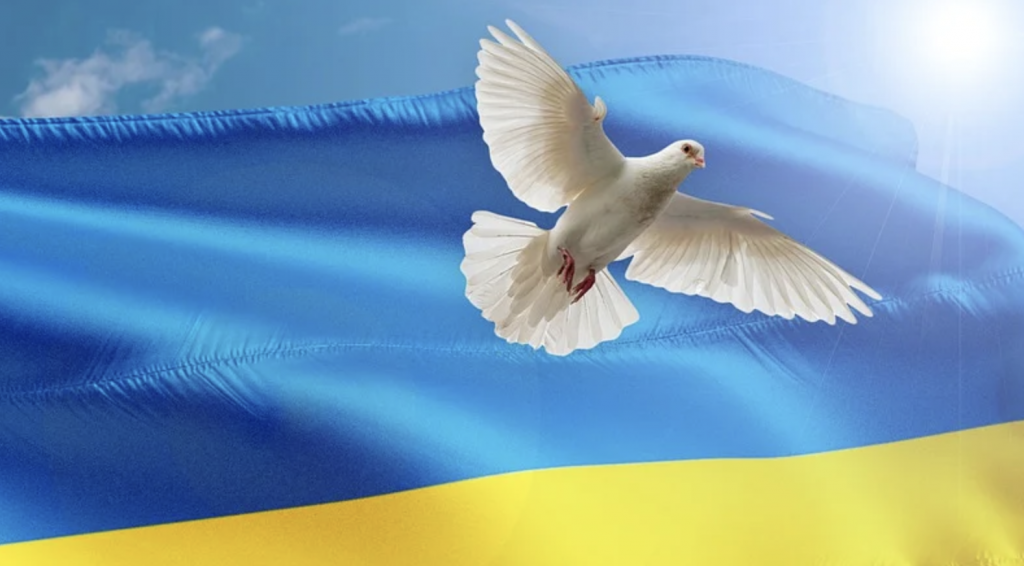Ukraine: Can A New Peace Coalition Be The Game Changer – OpEd
Published on March 13, 2022 | by Dr Lim Teck Ghee & BA Hamzah | eurasiareview.com

As the war in Ukraine enters its third week we are horrified at the extent of politicking, finger pointing and blame assignment which is reaching new levels of intensity and irrationality.
Western media reports continue to be filled with images of Ukrainian victims of war, descriptions of Russian atrocities, praise for the resolute defence put up by Ukraine’s President and military, and commentaries rooting for a military solution to ensure the victory of western democracy over Russian autocracy.
Russian President Putin especially has been the target of Western media and public wrath with opinion pieces and sound bites jostling on who can demonise him most and vying in labelling him with the choicest vocabulary used to describe the worst of war criminals.
With similar skewed and emotion charged reports, jingoistic propaganda, and fake news also found on the Russian and its allies’ side, what is happening is the inevitable hardening of public positions with calls for retaliation and revenge from one side echoed by the other.
In this latest arena of war, we see the emergence of new war gladiators and once again the silencing and drowning of the voices of reason, peace, and reconciliation.
What will this war in Ukraine, if unrestrained and unchecked, cost the rest of the world? This, and related questions, do not appear to have been given much consideration in the western world.
It is as if all the news about the war that is fit to be disseminated – apart from the focus on the suffering and daily tribulations of Ukrainians
– has to come from US, NATO and their diplomatic and military leaders and media support cast, who besides hyperventilating on what some of them see as a fight between good and evil and right and wrong, and escalating the war in words and deeds, have also been trying to entice non-Western and non-combatant nations into the fray.
Ignored or forgotten in the fog of war generated by western media coverage and analysis is how Joe Biden, Boris Johnson and Emmanuel Macron, facing domestic political losses that could see them out of office, may have goaded Putin and Russia into this latest opportunistic western instigated war to ensure their hold on power.
Thus, in his State of Union address Biden was not only quick to trumpet to his domestic and international audience how the United States, under his leadership, was resolved to ensure the victory of freedom over tyranny.
He also boasted:
“We prepared extensively and carefully. We spent months building coalitions of other freedom-loving nations in Europe and the Americas to — from America to the Asian and African continents to confront Putin.
I spent countless hours unifying our European Allies.”
Now, supported by members of the European Union as well as the United Kingdom, Canada, Japan, South Korea, Australia, New Zealand, and others, he is able to proclaim how previously neutral countries such as Switzerland “are inflicting pain on Russia and supporting the people of Ukraine”.
Inflicting pain; stirring up Russia phobic hysteria; cancelling Russia in many areas of the economy and life; banning Russian and Belarus competitors in the Beijing Winter Olympics and other sports; imposing across the board sanctions to punish and impoverish ordinary Russians;
proposing the assassination of Putin and seeking his overthrow by fair or foul means may appear the right moral and political response by the leaders of the West and western media.
But other countries of the world that have seen the West’s recent wars in Vietnam, Iraq, Afghanistan, Syria and elsewhere waged on spurious grounds and fraudulent allegations should not only examine closely the root causes that have compelled Russia to undertake this extraordinary and out of character military action.
They need to stand firm and reject being drawn into the western orbit seeking to take apart and destroy Russia in as many spheres as possible.
The outcome of what the US and NATO see as their endgame for Putin and Russia may very well be not only what the US President now belatedly recognizes as World War 3.
We may also see the use of nuclear weapons – whether by design or error – that will devastate the world as never before.
What are the alternatives then that the nations of the world should pursue? During the UN General Assembly meeting to discuss Russia’s “aggression against Ukraine”, although a majority of countries voted to approve it, 35 countries abstained in the voting.
Establishment of a Non-Aligned Peace Coalition
We propose that these 35 nations, working within the UN as well as outside it, should be the nucleus of a new peace initiative that begins work immediately to bring about a truce in the ongoing war and secures the withdrawal of Russia’s military forces in the cities and regions of Ukraine that are not part of Crimea, Donetsk, and Luhansk.
Leading this initiative can be countries from the Asian, African, and Latin American countries whose voices have long been ignored or marginalised in the global geo-politics dominated by the West.
The joining of the voices of peace from some of the largest nations and including Brazil, China, India, Indonesia, Iran, Malaysia, Mexico, Turkey, Vietnam and other countries of the non-aligned world to bring a peaceful resolution of the war may just be the game changer that the world needs to finally break free from the shackles of the old international security order that has been dominated by western powers.
Besides these countries and governments of the world, we call on global anti-war, religious, socio-economic, and other peace organisations to join an international and neutral initiative for the peaceful resolution of the war in Ukraine and a return to reconciliation and a secure world.
General Assembly resolution on Russian offensive in Ukraine, 2 March 2022
Full list of countries that abstained:
- Algeria
- Angola
- Armenia
- Bangladesh
- Bolivia
- Burundi
- Central African Republic
- China
- Congo
- Cuba
- El Salvador
- Equatorial Guinea
- India
- Iran
- Iraq
- Kazakhstan
- Kyrgyzstan
- Laos
- Madagascar
- Mali
- Mongolia
- Mozambique
- Namibia
- Nicaragua
- Pakistan
- Senegal
- South Africa
- South Sudan
- Sri Lanka
- Sudan
- Tajikistan
- Tanzania
- Uganda
- Vietnam
- Zimbabwe








